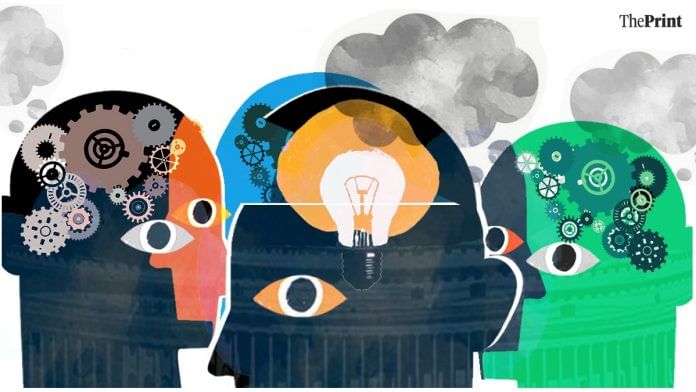For India to realise its vision of Viksit Bharat 2047—a developed nation built on economic strength, social equity, and sustainability—good policymaking is the first step. And in an age where influence can masquerade as insight, the credibility of the research shaping these policies has never mattered more.
As of 2020, India has more than 600 think tanks, with many working in the area of economic policy. These ‘think tanks’ intend to aid policymaking by periodically releasing reports, briefs, and “impact studies” on major economic and digital reforms. Although vital, this space is largely unregulated. While there are requirements to disclose foreign funding, there are no rules mandating objectivity and disclosure. Consequently, a part of their research work lacks transparency, methodological soundness, and academic integrity. As a result, flawed evidence and analyses shape public debate or influence policy choices. Policies and regulations based on such reports eventually harm the very interests they intended to serve.
The problem
Policymaking, in a democratic set-up, is a result of a bargain. Invariably, policies strike a balance among competing interests. One may assume that stakeholders are equally placed and heard. This, however, is not reality. Tech firms spent a record €151 million a year on lobbying at EU institutions.
Many “independent” reports, intended to shape policies, are sponsored by industry groups or entities with deep pockets and vested interests. Often, sponsored studies rely on small, unrepresentative samples, poorly designed surveys, or selective use of international evidence without context. More worrisome is that disclosure of funding sources is rare or buried in fine print.
At times, policy events allow lobbying in the name of debate, with little disclosure of participants’ affiliations. This process of lobbying under the guise of policy work distorts the regulatory process and harms stakeholders, such as consumers, who are unevenly placed.
Another problem that leads to flawed outcomes is a general lack of rigour in policy reports.
Also read: CEEW to iFOREST, Modi govt listens when think tanks talk. They are growing in clout & cash
Case in point
The debate around the Draft Digital Competition Bill illustrates these systemic problems. The Committee on Digital Competition Law was constituted to assess the need for an ex-ante competition framework for digital markets in India. In its report, the Committee recognised the limitations of the existing competition law and published a draft Bill on 12 March 2024, aimed at promoting competition, fairness, and transparency in digital markets. This law will demand changes in the existing business models of large digital firms, affecting their enormous profits.
Over the past year, some reports have attempted to evaluate the Bill’s likely impact on consumers, MSMEs, and the wider economy. Across these studies, recurring methodological flaws are evident. First, most rely on unrepresentative samples—such as university students or narrow MSME subsets—while making sweeping claims about the entire Indian market, undermining external validity.
Second, there is limited transparency regarding survey design, sampling procedures, and data-cleaning processes. Third, many surveys employ leading or hypothetical questions that bias responses in predictable directions. Fourth, several reports provide little clarity on authorship and funding sources. Certain think-tank reports even cross-cite one another to create the impression of academic consensus, though they rely on the same flawed data and assumptions. Evidence from the EU or the US is often cherry-picked to support predetermined policy positions, without acknowledging contrary findings.
Despite these weaknesses, some of these reports draw sweeping conclusions—such as calling for the Bill’s withdrawal—or extrapolate findings from one narrow sector to make economy-wide projections.
Policymakers and the media increasingly rely on such reports to understand complex regulatory questions. When flawed evidence becomes the basis for deliberations, it distorts democratic engagement. Thus, for issues as consequential as digital competition, lack of rigour and transparency can entrench existing power structures.
Also read: Adani-backed think tank CRF wants to do ‘chintan’–on India’s $30 trillion economy goal & more
Restoring trust in evidence
Biased policy work and its catastrophic effects are a global concern. Some institutions have already taken steps to curb this menace. The US Federal Trade Commission’s Bureau of Economics, in its disclosure policy, asks speakers participating in its events to provide their disclosures of potential conflicts of interest. The Academic Society for Competition Law (ASCOLA) updated its disclosure policy in 2025. It requires disclosure of external funding and other material and personal conflicts of interest by its members. All mainstream journals on law and policy also require disclosure of any conflicts.
Free market philosophy rests on user trust and fairness. When lobbying results in self-serving behaviour, it undermines the very essence of free markets. Therefore, India needs strong, credible research to guide policymaking, especially in fast-evolving fields like digital markets.
Think tanks in India must be mandated to disclose funding sources and affiliations for all public-facing research. The reports should adopt clear methodological transparency standards—surveys should disclose sampling, questionnaire design, and data cleaning processes. Further, they must engage with different viewpoints and ensure that different sides of the argument are represented. In the same vein, newspapers should also require contributors to disclose any potential conflict of interest. These steps will ensure that policymaking is evidence-based and serves the interests of common Indians, not just of corporate sponsors.
Vikas Kathuria is Professor at BML Munjal, School of Law and Director of the India Chapter of the Academic Society for Competition Law (ASCOLA). Shilpi Bhattacharya is Professor at Jindal Global Law School. Views are personal.
(Edited by Theres Sudeep)






